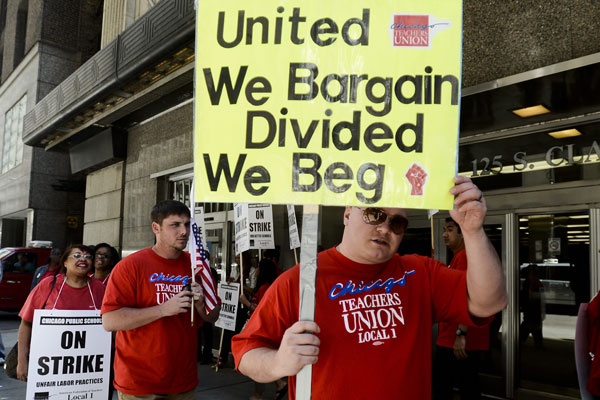Up to 875,000 federal workers may experience mandatory unpaid leave for one day per week thanks to sequestration, resulting in a 20 percent pay cut for 22 weeks beginning April 1. But the union that represents federal workers is vowing to get that pay. National Federation of Federal Employees spokesperson Cory Byrthrow threatens that the powerful union will “absolutely fight for back pay in the event of a furlough.”
As the New York Post recognizes, that would negate the spending reductions.
America’s debt is real, and we need to reduce government spending. Otherwise, we will see dramatically slower growth and a permanently smaller economy. What does this mean for Americans (federal union workers included)? A lower standard of living and fewer jobs.
Balancing our budget over the next 10 years is necessary and possible. But demands like this from political lobbying giants aren’t getting us there. Consider the state and influence of federal unions today, according to Heritage’s James Sherk:
More union members now work for the government than for private employers. The above-market salaries and benefits that government employees receive are paid for by taxpayers. So, the union movement that began as a campaign to improve working conditions and salaries for workers in the private sector, now pushes for ever-higher taxes to increase the generous compensation that government employees enjoy.
Since striking is often prohibited by law, federal unions must instead use political influence to determine their wages via legislation. A 2012 report by The Wall Street Journal found unions’ political spending from 2005-2011 was $4.4 billion between support for federal candidates and other political activity.
Not surprisingly, that money talks. The 1995-1996 government shutdown under President Clinton resulted in retroactive pay for all federal employees. This was used as a precedent during the 2011 shutdown when National Treasury Employees Union president Colleen Kelley requested back pay for furloughed employees. And while our debt crisis has only been compounded by the years, the fiscally irresponsible demands from politically padded union heft remain constant.
As Heritage’s Jason Richwine noted today, federal workers are compensated at higher levels than their private-sector counterparts. This is a systemic issue that will not be addressed with periodic furloughs.
While the sequester cuts are not an ideal way to rein in a budget, furloughs and back pay are the least of the problem. The changes will hit national security (defense is only 17 percent of the total budget, but will make up 50 percent of sequestration cuts), without even touching the elephants in the room of Social Security, Medicare, and Medicaid (which account for 64 percent of the budget).






























